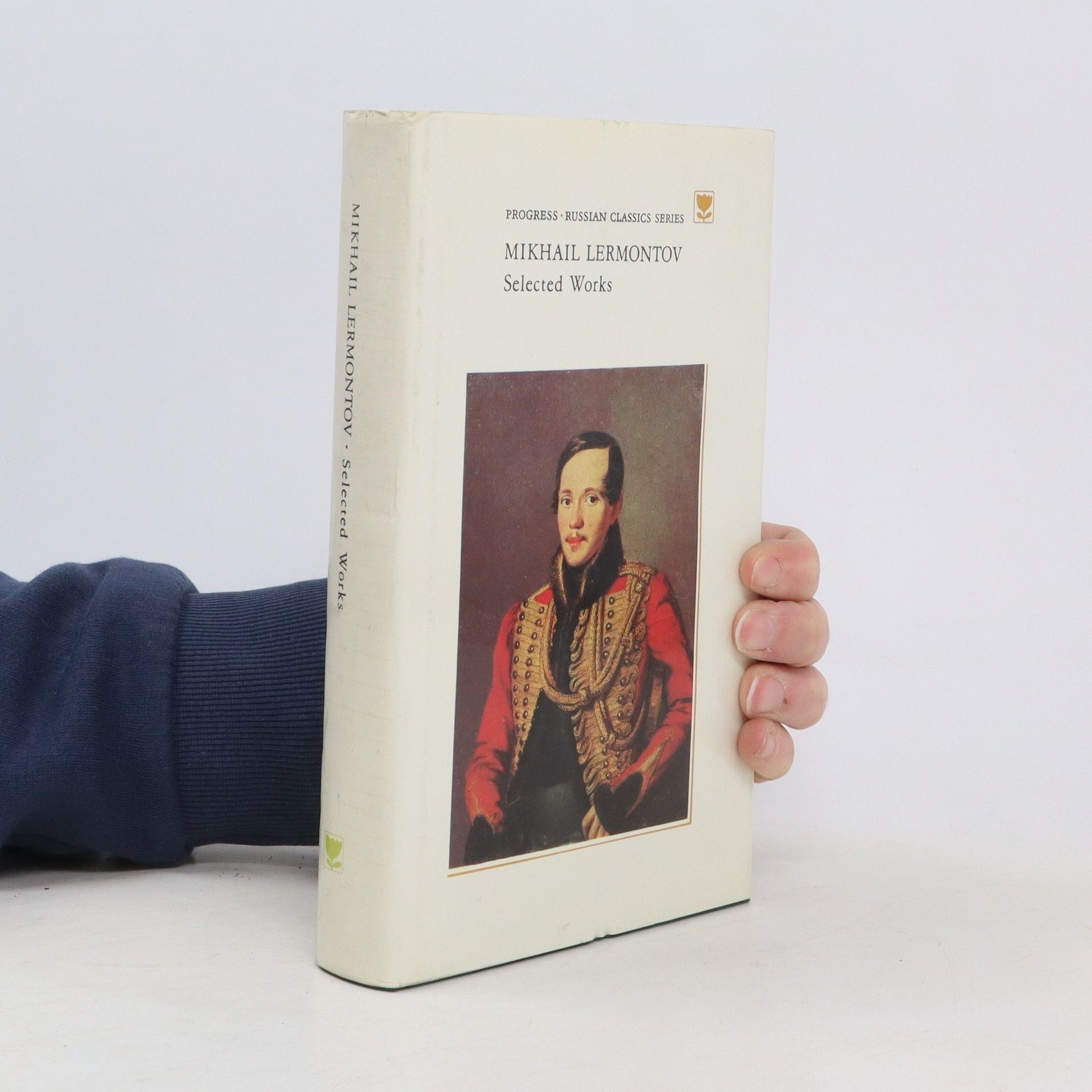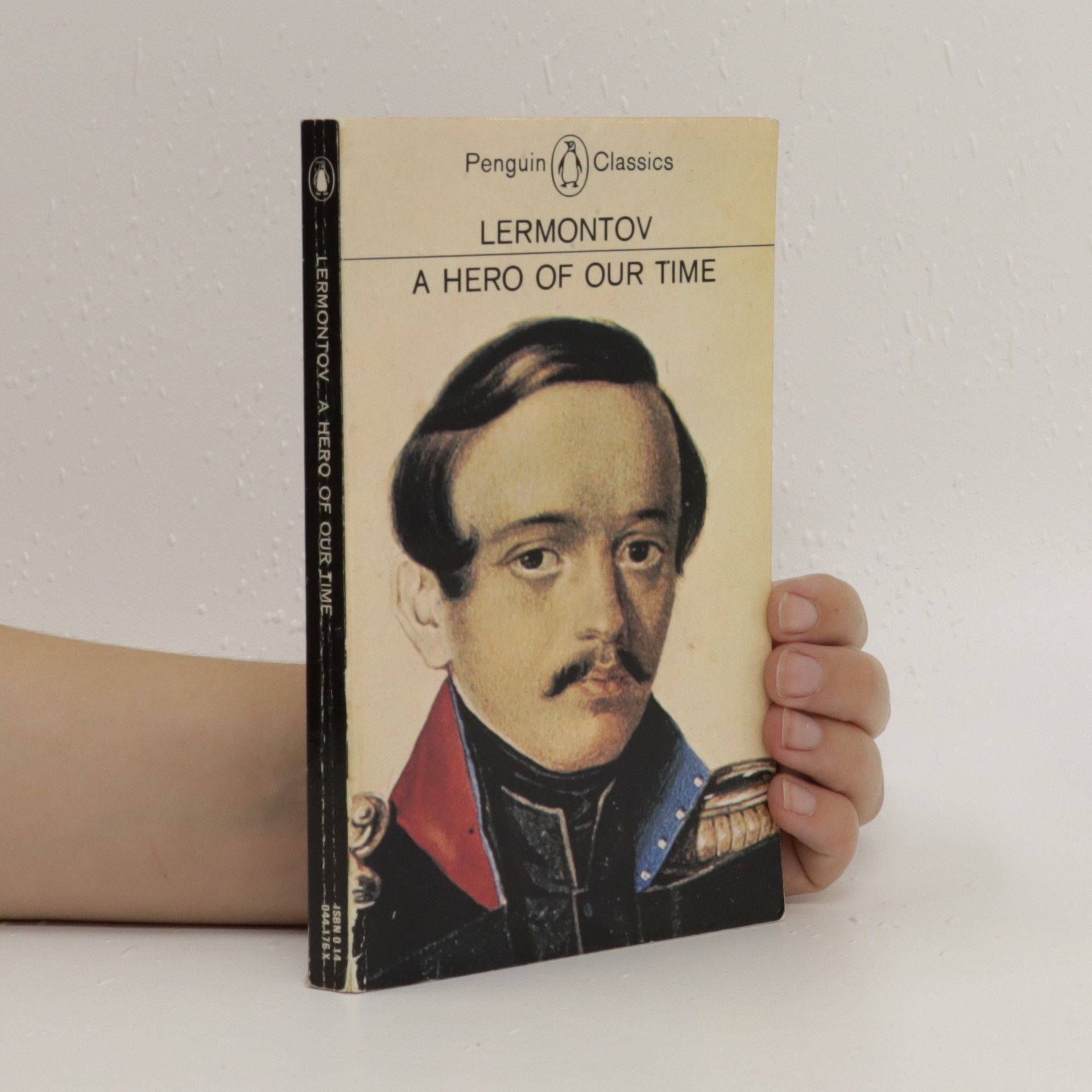The Demon: A Poem
- 84bladzijden
- 3 uur lezen
Michail Lermontov, vaak de "dichter van de Kaukasus" genoemd, geldt als de belangrijkste Russische dichter na de dood van Alexander Poesjkin. Zijn blijvende invloed op de latere Russische literatuur klinkt door in zowel zijn poëzie als zijn proza. Lermontovs leven, tragisch beëindigd in een duel, weerspiegelt dat van Poesjkin; opvallend genoeg verkenden beide dichters fatale duell-uitkomsten in hun hoofdwerken, waarin de protagonisten als overwinnaars tevoorschijn kwamen.







In five linked episodes, Lermontov builds up the portrait of a man caught up in and expressing the sickness of his times. A marvelous novel and an early landmark in Russian literature, A Hero of Our Time served as an inspiration for many later Russian authors, including Tolstoy and Dostoyevsky.
Circassian princess Bela is kidnapped by Azamat and traded for a horse. She ends up in the hands of Pechorin, a man who views women merely as trophies in his relentless pursuit of conquest.
Výbor z básní klasika ruské romatické literatury v překladech Emanuela Frynty a Josefa Hory.Michail Jurjevič Lermontov (1814-1841) byl ruským básníkem, dramatikem, prozaikem a především nespoutaným romantikem tělem i duší. První poémy psal na internátě ve čtrnácti letech a v osmnácti měl na kontě již přes dvě stovky básní a tři dramata. Z univerzity byl ale vyloučen, a tak se dal k husarům. Jeho literárním vzorem byl Puškin, který roku 1837 zemřel na následky zranění utrpěných v souboji. Lermontov mu věnoval báseň Na smrt Puškinovu, jíž si proti sobě popudil samotného cara Mikuláše I., a byl vykázán na Kavkaz. Po návratu pokračoval ve vojenské službě, ovšem nepřestával literárně tvořit. Možná tušil, že nemá příliš času nazbyt. Jako pravý romantický hrdina zemřel mlád, ve věku 26 let. Ironií je, že skonal stejně jako jeho vzor, v souboji.Zanechal po sobě úctyhodné dědictví čítající stovky básní a poém, tři romány a šest dramat. mezi jeho nejznámější díla patří epická poéma Démon, s níž se zařadil mezi velikány romantické tvorby, dále drama Maškaráda a román Hrdina naší doby.
Michail Lermontow, der letzte große Dichter der russischen Romantik, wurde nur 26 Jahre alt. Wie Puschkin ist er im Duell gefallen. Themen und Stimmungen der Sinnlosigkeit und Leere des Lebens, der Melancholie und der Einsamkeit, aber auch flammende Anklagen gegen das Unrecht in jeder Gestalt durchziehen sein frühvollendetes lyrisches Werk, das in vielem prophetische Züge trägt. Sprachen: Deutsch, Russisch
Svazek obsahuje výbor z autorovy lyriky z let 1828-1841. Vydáno ke 150. výročí autorova souboje.
Un demone si aggira intorno alla Terra, fiero della sua solitudine e della sua potenza ma triste di non saper amare; finché scorge la bellissima Tamara: si innamora, fa sì che il fidanzato della giovane venga ucciso e poi, invisibile, la seduce a poco a poco con la bellezza delle sue parole. Ma un unico bacio d'amore e di morte lo riporta alla tristezza e alla mancanza d'amore. "Il Demone" è il più famoso poema romantico della letteratura russa, punto d'incontro di suggestioni letterarie, opera di passione e specchio della tormentata esistenza del poeta. Eco di una rappresentazione misterica in termini romantici, è un'opera ricca di evocazioni paesaggistiche del Caucaso e di intuizioni profonde dei moti dell'animo: dall'ingenuità di Tamara, salvata dal Cherubino nonostante sia morta tra le braccia del diavolo, alla psicologia del demone, destinato alla solitudine eterna e vinto nel suo, sia pure appena accennato, bisogno d'amore.